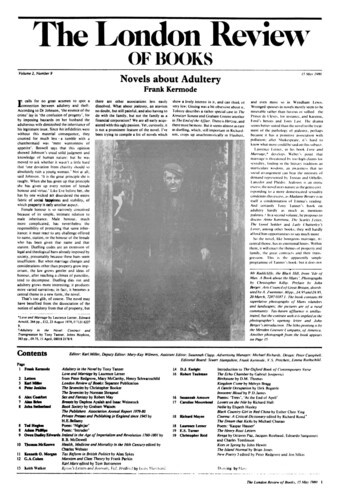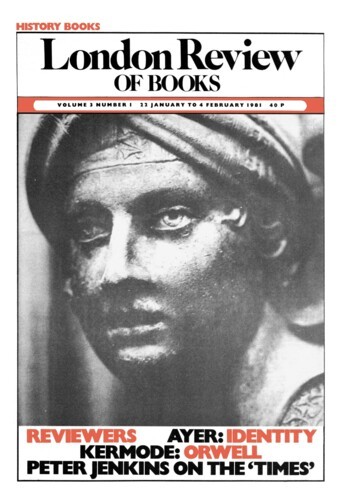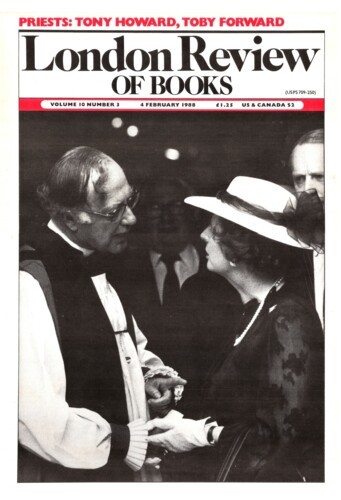Ireland’s Invisibilities
Owen Dudley Edwards, 15 May 1980
Dr R.B. McDowell knows and tells far too many relevant good stories to require the enhancement of his prose by specimens of the ‘Irish bulls’ of Sir Boyle Roche, who single-handedly did so much to make them the symbol of the age under discussion, but the published volume seems to embody a set of paradoxes that approach bullish status. The author’s text goes on for over seven hundred pages, and his felicitous style and speed of narrative hold the audience’s interest better than most works one-third the size. The general reader may occasionally be bewildered by the mass of detail, yet cannot fail to enjoy a book whose publishers have priced it so firmly out of his reach. The high price is offset by some of the worst proof-reading and copy-editing with which the Clarendon Press has to date seen fit to favour its readers. The book is worthy to be placed on the same shelf as that 19th-century masterpiece, Lecky’s multi-volume History of Ireland in the 18th Century, but it will find the proximity of works of its own century much more uneasy company. Not only does the title invite endless tutorial discussions on why this particular period should be singled out as the ‘Age of Imperialism and Revolution’, but the meaning of ‘Ireland’ as here discussed opens up a Pandora’s box of controversy.



